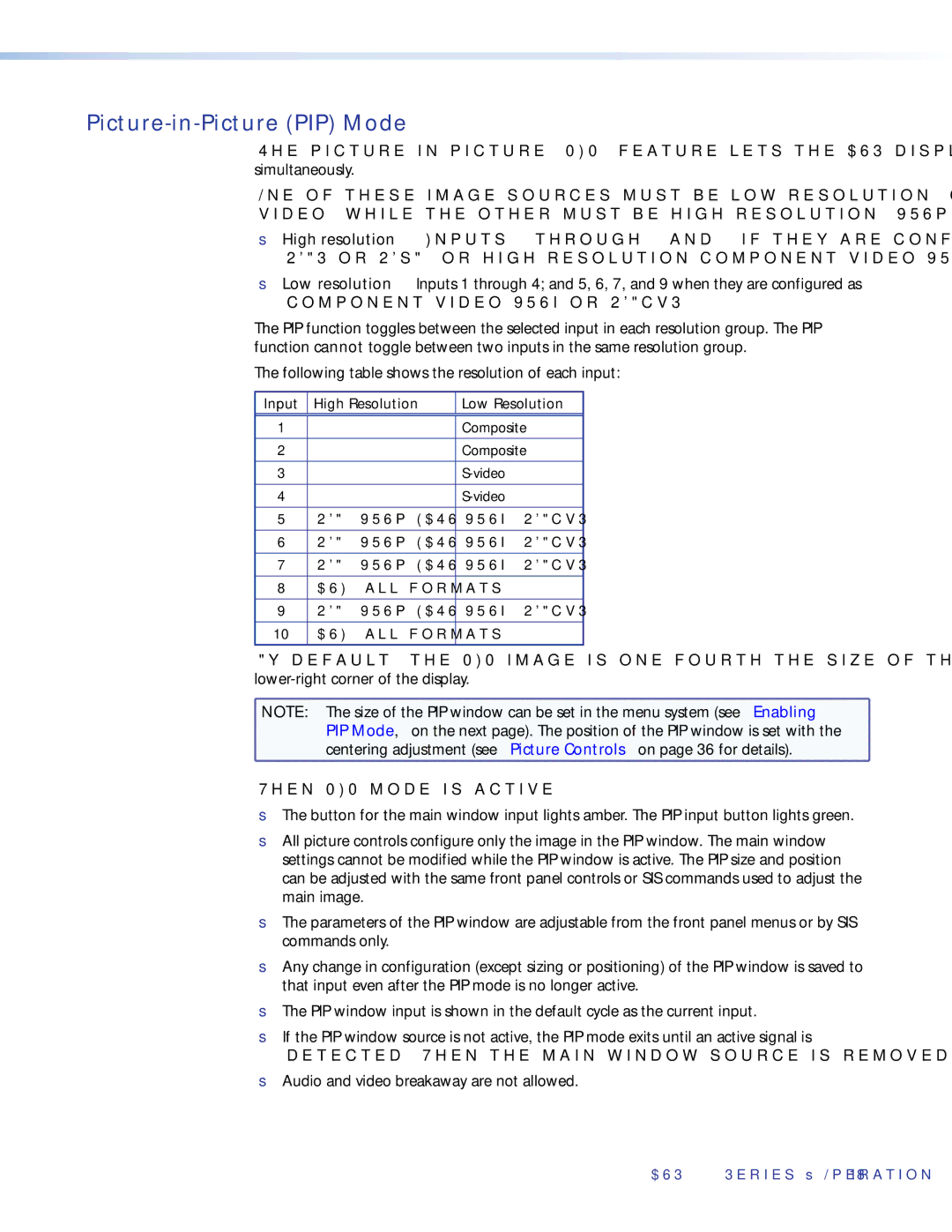
Picture-in-Picture (PIP) Mode
The
One of these image sources must be
•High resolution — Inputs 5 through 7 and 9 if they are configured as RGB (RGBHV, RGBS or RGsB) or
•Low resolution — Inputs 1 through 4; and 5, 6, 7, and 9 when they are configured as component video YUVi or RGBcvS
The PIP function toggles between the selected input in each resolution group. The PIP function cannot toggle between two inputs in the same resolution group.
The following table shows the resolution of each input:
Input | High Resolution | Low Resolution |
|
|
|
1 |
| Composite |
|
|
|
2 |
| Composite |
|
|
|
3 |
| |
|
|
|
4 |
| |
|
|
|
5 | RGB, YUVp/HDTV | YUVi, RGBcvS |
|
|
|
6 | RGB, YUVp/HDTV | YUVi, RGBcvS |
|
|
|
7 | RGB, YUVp/HDTV | YUVi, RGBcvS |
|
|
|
8 | DVI (all formats) |
|
|
|
|
9 | RGB, YUVp/HDTV | YUVi, RGBcvS |
|
|
|
10 | DVI (all formats) |
|
|
|
|
By default, the PIP image is
![]() NOTE: The size of the PIP window can be set in the menu system (see “Enabling
NOTE: The size of the PIP window can be set in the menu system (see “Enabling
PIP Mode,” on the next page). The position of the PIP window is set with the centering adjustment (see “Picture Controls” on page 36 for details).
When PIP mode is active:
•The button for the main window input lights amber. The PIP input button lights green.
•All picture controls configure only the image in the PIP window. The main window settings cannot be modified while the PIP window is active. The PIP size and position can be adjusted with the same front panel controls or SIS commands used to adjust the main image.
•The parameters of the PIP window are adjustable from the front panel menus or by SIS commands only.
•Any change in configuration (except sizing or positioning) of the PIP window is saved to that input even after the PIP mode is no longer active.
•The PIP window input is shown in the default cycle as the current input.
•If the PIP window source is not active, the PIP mode exits until an active signal is detected. When the main window source is removed, a black background is displayed.
